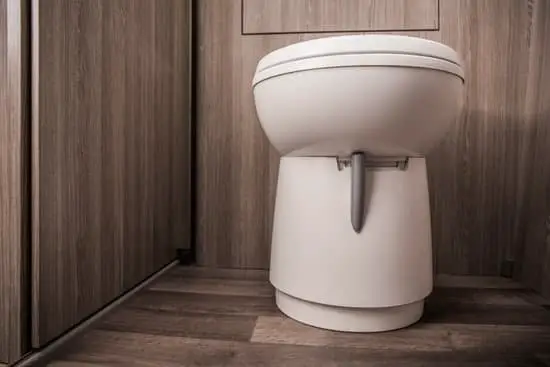When you are thinking about purchasing RV antifreeze, it is important to know if the type of antifreeze that is in your Rv will harm your septic system. Before we get into this topic, let’s discuss a little bit about what exactly a septic system is and how it works. A septic system consists of three main parts: a water tank, an absorption area, and a drain field.
Septic systems work by filtering solid waste from wastewater using bacteria. These solids settle out over time in the absorption chamber while liquid flows through perforated pipes underground where they break down naturally. Ethylene glycol has a low freezing point and can damage the pipes that carry wastewater to the drain field.
RV antifreeze is a chemical mixture of ethylene glycol, which has a low freezing point and will cause damage to your septic system, or propylene glycol, ethanol… a small amount in an RV won’t hurt anything.
- The Propylene Glycol Or Ethanol Used In Rv Antifreeze Are Safe For Your Septic System And Won’t Cause Any Damage When Used Appropriately.
- It’s important to know what type of chemicals are used in your vehicle before determining if they’re also safe for your home! If it isn’t listed on their website – call them!
- This way you’ll be assured that what you use in your vehicle is safe and won’t do any damage to your septic system.
What type of chemical mixture is used in RV antifreeze? It’s important to know if the chemicals are harmful to your home before deciding whether or not they’re also damaging to a septic system! If it isn’t listed on their website, call them! This will ensure that the chemicals being used in your vehicle aren’t hurting anything else – including your home. What types of solids settle out over time? The solids that settle on top of sand or gravel when wastewater passes through an absorption chamber are called sludge. The liquid flows underground where they break down naturally. These liquids will then travel through perforated pipes underground.
The solids that settle out over time in an absorption chamber are called sludge and the liquids will flow through a series of pipes before breaking down naturally.
What can ruin a septic system’s health?
Your drain field can be blocked by the latex as it flows out of your septic tank. Latex can also cause damage to the pump impeller. Substances like floor wax, paints, varnishes, and motor oil can cause damage to your tank.
Is it possible to use RV antifreeze in my toilet tank
Propylene Glycol may be used in Recreational Vehicles (RVs). It is also safe to use in your home’s drinking water system. This product is sometimes called Antifreeze. After draining the water, you can add antifreeze to the toilet’s water tank.
Is it possible to use bleach inside a septic system?
You can use sanitizers to kill viruses and bacteria in your septic tanks. You must ensure your system is working properly by allowing bacteria to flourish in your septic tank. But, their survival could be at risk from excessive bleaching and misuse. If you are careful with your usage, your septic system can remain balanced.
Is it possible to put antifreeze in the toilet?
Antifreeze should not go on the ground, or in the trash. Antifreeze should not be poured down the household drains or into your toilet if you have a sewer line. Check your connection to the municipal wastewater plant before you pour antifreeze down a sink or toilet.
It is safe to use bleach in a tank with septic.
Septic tanks can take small amounts of ammonia. Ammonia does not affect septic tanks. It is not advised to mix chemicals such as bleach and ammonia. You can use septic tanks with any water-based cleaners that have water as the first ingredient.
Can RV antifreeze be reused?
Antifreeze can be reused. Collect the antifreeze in a bucket. Keep in mind that, although the ultimate goal of RV antifreeze is to clean it all out and clear the system, it doesn’t contain any harmful substances so don’t be alarmed if there are.
How can RV antifreeze be disposed of in pink?
You can safely dispose of RV antifreeze in auto parts shops and service stations. You might be able to give it to recyclers. There may be a charge. It is not a good idea if RV antifreeze is disposed of down the drain.
What’s the greatest thing you could put in your septic tanks?
Cabin Obsession Treatment Septic Tank Treatment – Best All-In Green Gobbler SEPTIC SAVE Bacteria enzyme Pacs
- THE BEST BANG FOR YOUR BUCK
- BEST CLOGS – Instant power 1868 Septic Stimulation
- Walex BIO-31112 BioActive Septic Tank Maintenance Drop-Ins
Is pink RV antifreeze harmful?
It is safest for all RV plumbing types. It is not flammable so it won’t cause any harm to water systems.
Can bleach cause septic tank problems?
You might not have known that chlorine bleach, even in small quantities, can cause serious problems for a septic system. Even a very small amount can be dangerous. According to a study, liquid bleach required almost two gallons of liquid bleach to kill beneficial bacteria in septic tank septic tanks. Chemical drain cleaners needed only one teaspoon.
Is RV antifreeze safe for flushing down the toilet?
Can RV Antifreeze go down the toilet? You can safely dispose of RV antifreeze used on your RV’s plumbing lines. It’s non-toxic and can be used in cosmetics. Avoid putting automotive antifreeze, also known as Ethylene glycol, down your drain. It is toxic and should be avoided.
Is it legal to add RV antifreeze in a freshwater tank?
The RV Doctor’s Instructions. It is much easier to pour the antifreeze from a faucet with a backflow pump. It is acceptable to pour the antifreeze directly into the tank, and then circulate it with the RV water pump.
What are the main causes of septic system failure?
Septic system failure is often caused by over-watering. The wastewater flow rate in a septic system is dependent on the number of bedrooms served (120 gallons per bedroom per day).
Can antifreeze cause damage in a septic tank?
The septic system can also be affected by ethylene glycol. Your system is safe from ethanol in RV antifreeze and propylene glycol. They are safe to use in the right amounts.
What is the safest amount of bleach that I can use in my septic tanks?
Their health could be endangered by excessive bleaching and misuse. Moderate bleach usage will not harm your septic system. Moderate bleach usage refers to the amount used in a normal-sized laundry load (e.g. 3/4 cup) as well as the amount used for the toilet bowl.
What is the safest bleach for your septic system and what are its benefits?
It is possible that you didn’t know that small amounts of chlorine bleach can be as dangerous to your septic tank. Even a very small amount can be dangerous. It took nearly two gallons for liquid bleach to kill beneficial bacteria within a septic tank, while chemical drain cleaners required only about one teaspoon.
What do I do with antifreeze no longer in use?
Make sure that antifreeze that has been contaminated and antifreeze that is not contaminated is kept separate and in a different container.
You can drive the antifreeze directly to the proper disposal location. To collect the antifreeze, you can also hire a commercial hauler.
What can bleach do for septic tank septic tanks?
You can get septic tanks contaminated by household chemicals. These chemicals kill bacteria necessary to properly treat and break down the waste. The bleach or chemical kills bacteria.





